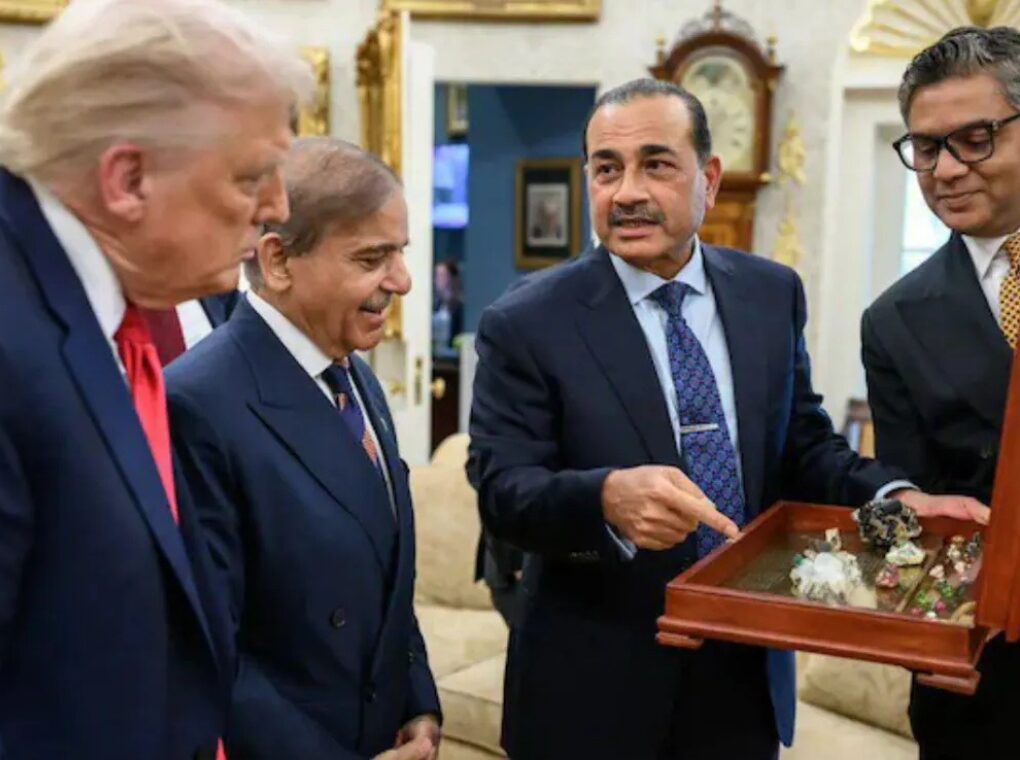In the complex theatre of global geopolitics, Pakistan has long been known for its ability to play both sides of the fence. Whether it was sheltering Osama bin Laden while claiming alliance with Washington, or taking billions in aid while funding insurgent networks, Islamabad’s foreign policy has often been defined by contradictions. The latest act in this ongoing saga is Pakistan’s rare earth diplomacy — a calculated shift that reveals both opportunism and hypocrisy.
From Beijing’s “Iron Brother” to Washington’s New Ally
For decades, Pakistan has proudly proclaimed its unbreakable “iron brotherhood” with China. Under the Belt and Road Initiative (BRI), Beijing poured billions of dollars into Pakistan through the China-Pakistan Economic Corridor (CPEC). Projects like the Gwadar Port and infrastructure corridors were touted as symbols of everlasting friendship.
In exchange, Pakistan opened access to its valuable rare earth elements (REEs) — minerals essential for modern technologies, from electric vehicles to defense systems. Chinese companies helped Pakistan explore and develop mining sites in regions like Balochistan, Khyber Pakhtunkhwa, and Pakistan-administered Kashmir, providing advanced equipment and technical expertise.
But beneath the surface, this partnership came with strings attached. Many Pakistanis accused their leaders of turning the nation into a resource colony, allowing China to extract wealth while leaving Pakistan burdened with loans and environmental degradation.
The 2025 Pivot: Pakistan’s Turn Toward the United States
By mid-2025, Pakistan’s economy had sunk into a deep crisis — record inflation, surging debt, and a failing currency. In desperation, Islamabad began re-engaging with the United States, a country it had alienated for years.
In August 2025, Pakistan’s powerful Army Chief, General Asim Munir, made back-to-back visits to Washington, meeting with American military and political leaders. His pitch was clear — Pakistan was open for new partnerships. The real turning point came in September 2025, when Prime Minister Shehbaz Sharif and Munir met U.S. President Donald Trump at the White House.
In a symbolic gesture, they presented Trump with a wooden box of rare earth mineral samples, inviting American investment in Pakistan’s mining sector. Weeks later, Islamabad announced a $500 million agreement with a U.S. firm to establish a poly-metallic refinery, focusing on key minerals like neodymium, praseodymium, copper, and tungsten.
By October, Pakistan shipped its first batch of refined minerals to the U.S., including products processed using Chinese-origin technology. This move, while celebrated in Pakistani media as an economic breakthrough, marked a sharp betrayal of Beijing — the very partner that had provided Pakistan the mining know-how it now sells to Washington.
China’s Reaction: Strategic Silence with Subtle Retaliation
China’s response was swift but diplomatic. On October 9, 2025, Beijing expanded export controls on 12 rare earth elements — including several vital for defense and semiconductors. Officially, this was a response to Western chip restrictions. Unofficially, it was a warning to Islamabad.
Beijing’s foreign ministry dismissed reports linking the move to Pakistan’s rare earth deal, calling such reports “baseless.” But Chinese insiders reportedly began freezing technology transfers and slowing shipments to Pakistani mining projects — a subtle yet powerful reminder of who controls the global rare earth supply chain.
History Repeats: The Pattern of Pakistani Duplicity
This wouldn’t be the first time Pakistan has betrayed an ally for short-term gain. In 2011, the discovery of Osama bin Laden living just kilometers from Pakistan’s military academy exposed Islamabad’s duplicity to the world. During his first presidency, Donald Trump accused Pakistan of harboring terrorists while pocketing U.S. aid, calling it a “hypocrite nation.”
Fast forward to 2025 — and history seems to be repeating itself. The same Trump who once cut Pakistan off now praises Asim Munir as his “favorite Field Marshal,” while Islamabad once again switches allegiances for profit.
Pakistan’s pattern is consistent: side with whoever pays more — whether it’s Washington, Beijing, or Riyadh. It’s a survival strategy wrapped in the language of “sovereignty.”
Analysis: Realpolitik or Recklessness?
Defenders of Pakistan argue that this is not hypocrisy but economic pragmatism. With the economy on the brink of collapse, Islamabad must diversify its partnerships and avoid total dependence on China. But critics — both domestic and foreign — call it what it truly is: opportunistic duplicity.
By leveraging Chinese technology to supply minerals to the U.S., Pakistan risks alienating Beijing without securing lasting American trust. The U.S. views Islamabad as a convenient tool against China, not a long-term ally. Meanwhile, China may quietly retaliate by reducing aid, suspending CPEC projects, or backing rival influences in the region.
The move also exposes Pakistan to internal risks — from Baloch insurgents attacking mining sites to public backlash over “selling national resources to foreigners.”
The Hypocrite’s Trap
Pakistan’s rare earth gamble is a textbook case of short-term gain, long-term risk. By betraying its Chinese partner and cozying up to Washington, Islamabad has once again proven it cannot be fully trusted by any power bloc.
This pattern of deceit — from the War on Terror to rare earth diplomacy — reinforces the view of Pakistan as a transactional state, not a strategic one. In trying to serve two masters, Pakistan may soon find itself abandoned by both.
As the world races for control of critical minerals, Pakistan’s rare earth strategy might bring temporary relief — but it will cost the nation what little credibility it still has left.
